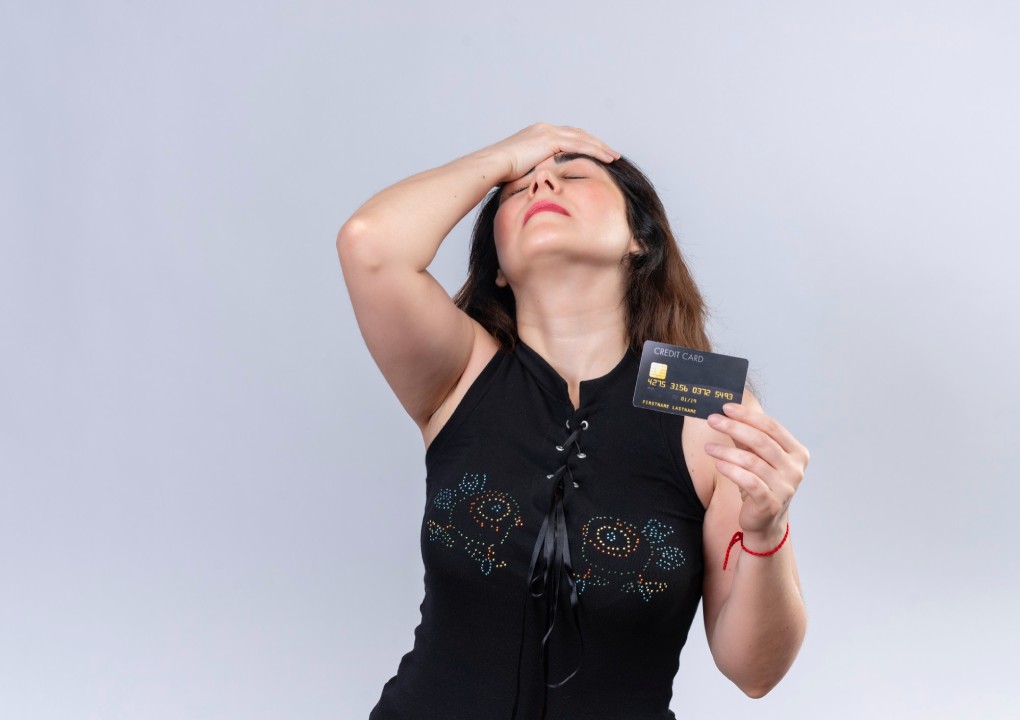

Get salary accounts for your team See benefits



Table of Contents
ToggleCredit cards are a great financial tool in today’s time. It provides you extra support when faced with a cash crunch at the end of the month and even makes your finances more manageable. But what happens if you get a credit card and don’t use it for months?
When you don’t use your credit card for a long period of time, it is known as credit card inactivity. The credit card issuer deactivates your card after crossing a set duration of time without using it. This duration of dormancy is different and depends from one provider to another. Usually, a credit card issuer will deactivate your credit card if you don’t use it for more than six months, but again, this period is different for different cards and banks.
If you don’t use your credit card for an extended period, there are several consequences that may happen, which may not fall in your favour. Below are some reasons why you should not keep your card inactive for a long time:
Inactivity fees on a credit card are charges that the card issuer may apply if the card hasn’t been used for an extended period, often spanning several months or a year. The purpose behind these fees is to motivate cardholders to continue using their cards regularly. While not every credit card company enforces inactivity fees, those that do usually include the specifics in the card’s terms and conditions. Being mindful of these fees is crucial, as they can accumulate over time and increase the overall expense of keeping the credit card.
Credit card companies often close accounts due to inactivity to help mitigate risks for the issuer. An unused card can be more vulnerable to fraudulent activity, as cardholders may not closely monitor an account they don’t regularly use. By closing these accounts, credit card companies reduce the chances of unauthorised use, which could lead to financial losses and damage to the company’s reputation. Overall, closing inactive accounts allows credit card companies to protect their interests while streamlining their operations.
If your credit card account remains inactive for a certain period, there’s a chance that some of your rewards and benefits could expire. Additionally, if your account is closed before you have a chance to redeem your rewards, you’ll forfeit them entirely.
Even if you haven’t used your credit card over the past few months, you still have to pay the annual fees if you want to keep it. To maximise your card’s value, your earned rewards should outweigh the annual fee. Otherwise, if you’re paying for a credit card that offers no real benefits, you’ll end up losing money over time. So, if you are paying the annual fees, you might as well just use the card.
If you don’t use a credit card, it generally won’t have much impact on your credit score. However, the situation shifts when you decide to cancel it. Closing credit cards with the highest limits can potentially cause the most damage.
Your credit usage, often referred to as credit utilisation, is the second most significant factor influencing your credit score. It’s calculated both for individual cards and across all your credit accounts. Financial experts suggest keeping your credit usage below 30% of your total limit, with the top scorers often staying under 10%. Keeping an unused credit card active can help lower your credit utilisation ratio, positively affecting your credit score. The longer you hold onto credit, the better it is for your score.
Interest will still accumulate on any outstanding balances, even if you’ve stopped using your card. Ignoring it won’t make it disappear. Failing to make at least the minimum payment could lead to late fees and a drop in your credit score. To avoid letting your credit card debt get out of control, continue reducing your balance, even if you’re taking a break from new purchases.
To keep your credit card from being deactivated, consider these practical steps:
Regular Small Purchases
Make a small purchase with your credit card to ensure it remains active. This not only helps keep the card in use but also allows you to monitor any unauthorised transactions.
Recurring Payments
Set up automatic payments for subscriptions or bills to maintain consistent activity.
Balance Transfers
If you have a balance on one credit card, consider transferring it to another card and converting it into manageable EMIs.
Pay Your Bills
Always pay your bills on time. If you’ve maxed out your credit limit, your card issuer might temporarily deactivate the card until the outstanding balance is cleared.
If your credit card has been deactivated due to inactivity, here are steps you can take to avoid future complications:
Reach out to the issuer for reactivation
Sometimes, a simple follow-up can get your card reactivated. It’s a good idea to send a written request to the issuer, emphasising your consistent on-time payments and solid credit history as reasons for reactivation.
Review your credit score
If your deactivated credit card had a significant credit limit, its closure might negatively impact your credit score due to an increased credit utilisation ratio. Check your credit score to assess the impact. If there’s a noticeable decline, take steps to rebuild your credit.
Keep an eye on your credit report for closure
Regularly review your credit report to confirm that the deactivated card is marked as closed and that there are no outstanding balances associated with it.
Grasping the consequences of letting your credit card sit idle is crucial for managing your credit responsibly. To keep your credit score in good shape and take full advantage of your card’s benefits, it’s important to use it regularly and steer clear of inactivity fees.
Want a credit card that fits all your needs?
Find your perfect match with our Edge CSB Bank RuPay Credit Card on Jupiter
Neglecting to use your credit card can impact your credit score in several ways. When you don't use your card, your credit utilisation ratio decreases, which might prompt the issuer to close your account. This, in turn, reduces your available credit and can harm your score. To keep your credit profile in good shape, it’s important to use your card regularly and responsibly.
Credit card issuers may close accounts if they remain inactive for a prolonged period. If a card is unused for too long, the issuer might close it to reduce risk and manage their resources. This can negatively impact your credit score by lowering your available credit and changing your credit utilisation ratio.
Typically, there are no fees solely for not using a credit card. However, some cards might impose inactivity fees or have annual fees that apply regardless of whether the card is used. Furthermore, not using your card could result in account closure, which can indirectly affect your finances by reducing your available credit and potentially lowering your credit score.
There isn't a set timeframe, but generally, a year or more of inactivity might lead to account deactivation. The specific period can vary depending on the issuer.
Closing an old credit card, particularly one with a lengthy history, can hurt your credit score. It's usually better to keep such accounts open, even if you’re not using them actively.
Priyanka Rao is a content strategist for Jupiter.Money, and specializes in writing on topics related to finance, banking, budgeting, salary & wages, and other financial matters. She has a passion for creating engaging content that resonates with audiences across various digital platforms. In her free time, Priyanka enjoys traveling and reading, which allows her to gain new perspectives and inspiration for her work. With a keen eye for detail and a creative mindset, Priyanka is committed to creating content that connects well with her readers, enhancing their digital experiences.
Priyanka Sharma is the Head of Credit Cards (Sr. Director Business & Product - Credit Cards) at Jupiter Money, where she leads the growth and development of the company’s credit card portfolio. She is responsible for driving strategic initiatives and enhancing customer experiences through innovative credit products. Priyanka’s leadership is shaping Jupiter’s approach to simplifying personal finance for its customers.
Prior to her role at Jupiter Money, Priyanka was an Engagement Manager at McKinsey & Company, where she provided strategic advice to clients across various sectors. Her expertise in business strategy, growth, and operations was built on her strong analytical skills and client-focused problem-solving abilities. Earlier in her career, she worked at ZS, a global business consulting firm, where she contributed to various projects, gaining significant experience in data-driven business decisions.
Priyanka holds a Post Graduate Programme in Management with a focus on Finance, Strategy, and Leadership from the Indian School of Business (ISB), where she graduated with distinction, earning a place on the ISB Dean’s List. This prestigious academic achievement underscores her deep understanding of financial strategy and leadership, which she continues to leverage in her fintech leadership role.

Powerd by Issued by
